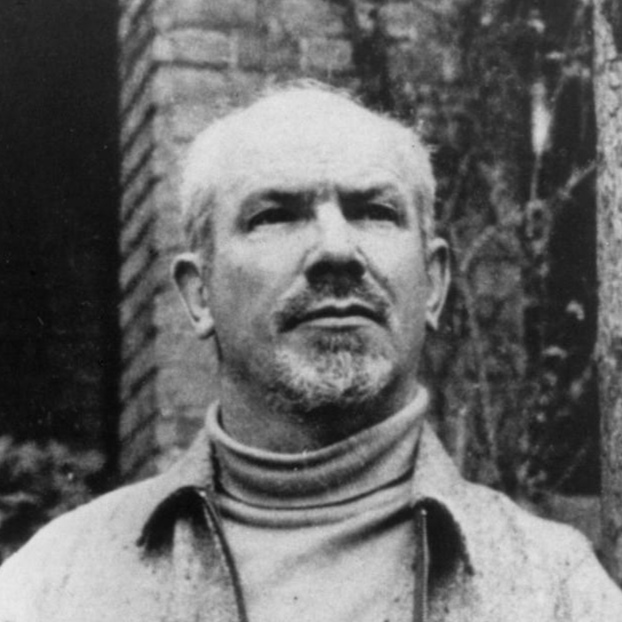I have tried writing things I don’t want to forget, but I didn’t like it much. I have copied short quotes and added sticky notes at important parts, which I liked, but felt possibly not enough. I tried annotating, but it made me feel bad and disrespectful for the book.
Buy a notebook, take a pen and put both to the side of your book. Read from the book first, going paragraph per paragraph. Understand what is being said, and take your time trying to figure it out if it is a hard and complicated part (there's many of those in Kapital). Then, once you have it, try to put it in the simplest of words without making it lose its essence. Finally, write it down.
As others are offering some good advice, I'll make a case for just reading. Don't worry about taking notes to remember. Just read. Then you have two further options:
- Read the same text multiple times until you understand it fully over a period of weeks, potentially without studying any other serious texts in that time.
- Read something else, then something else, keep going, eventually come back to the first text and read it again. Then read the second text, then the third, and so on.
David Harvey has an anecdote that he learned something different when reading Capital with different classes—econ, Eng lit, history students, etc, because each cohort noticed different details and enriched his understanding. I think the same thing happens when reading the same texts at different times in your life. Different details pop out. And connecting texts to your own life events can help you to remember them.
For example, people who get married and add a few choices sentences of Mao's On Contradiction to their wedding vows is unlikely to forget the crowd's reaction. This is a joke, of course; a good communist would not be able to select a limited few sentences and would surely include the whole text.
On a more serious note, two things. First, it will be useful to learn about the forgetting curve: essentially if you repeat things, you will remember it for longer and every time, it will take longer to forget. So you can read a chapter today, and you'll forget most of it by the next day. But if you skim the chapter tomorrow, you'll remember more details for a week. Then look again next week and you'll remember for a month, etc.
Second, if you just keep reading on a theme or topic, you'll come back across the same ideas repeatedly. So you might not remember the exact details of the first text, but you'll get the repetition needed to beat the forgetting curve with regard to the key ideas. Then if you go back to the first text you want to remember, you'll find that the main ideas are already cemented in your head and all you need to do is re-remember some of the more specific details.
Just keep going and don't worry about what you're forgetting. The important bits will stick whether you like it or not. Then when you're more confident with the foundations of any given topic/subject/theme, you can concentrate on mastering the details about exactly who said what, where, why, and how.
In the not too distant olden days, it used to be said that people 'read' (past tense) for a degree. They didn't study for one, they read for one. Hard to say whether things have changed for the better or the worse but there was something very honest in that way of talking about higher ed; it's the best way to succeed. (I know you asked in the abstract, but this tidbit seems relevant to my case if not directly to your circumstances.)
I've written a few other comments about taking notes and reading, which may be helpful to you:
- https://lemmygrad.ml/comment/2120527
- https://lemmygrad.ml/comment/1998431
- https://lemmygrad.ml/comment/399781
- https://lemmygrad.ml/comment/357039 (three nested comments on reading)
I should say that I am an advocate of writing to learn and to think. I wrote a little about that, here. So I do agree with the others in this thread who are talking about writing; I'm just suggesting that writing is one technique among others, which has certain purposes, and that there's value in not worrying too much about writing and just reading, instead. In part, as a process of working out what you need/want to focus on studying in more depth (at first, everything seems important but it's might not be, and more reading helps you figure out which is which).
Incidentally, I'm currently reading Seymour Hersh's memoir (it's excellent, so far, if you wondered) and in the first third, there's a lot of praise for others who taught him about the need to read, read, read before committing pen to paper.
Hope this helps!
Yeah, reading overlapping stuff has been helpful for me. There’s so many things to read that I don’t feel like re-reading much, but I’ll probably reread important stuff like the communist manifesto and state and revolution. I will check out your other comments.
I'm similar. I only re-read things that I have to, or which are essential. Tbh once I know the guts of a piece, I'll focus on re-reading the important bits – I'm more confident skipping the parts I don't need so much; it's hard to do that on the first read through as it could all be important.
I find that I don't need a schedule of re-reading. It happens almost naturally. Someone will ask a question or I'll be talking about something and need to confirm the source for whatever I'm saying. As the source is familiar, I can (usually quickly) find the right pages, and use the opportunity as a prompt for re-reading.
The same happens with writing: as you try to articulate yourself, you realise what you don't know well enough to explain. Don't bodge it! Take the chance to look it up again and make sure you're right. I wouldn't just routinely re-read stuff.
I do have Capital on my radar to re-read as I know that I can't have understood it properly when I first read it, however much I learned from it, having zero knowledge of dialectics or historical materialism until later, when I started asking, 'okay, so how do I do what he did?' As so much has happened in the meantime, it'll be like reading a different book, I'm sure.
For me, that's the key to re-reading something in full. It doesn't necessarily need a years-long gap, but some internal transformation can make the process more fruitful. This is a bit different to needing to read something twice or more (like a few pages or paras or even a chapter) because it was so difficult/opaque, like some more abstract or technical works can be.
Okay, for note-taking I think there are a few critical things to do:
-
Write down explanations of terms/names which you don't implicitly understand the meaning of. Lenin is dragging Kautsky but you don't know why or what Kautsky represented? Cool. Figure it out via Wikipedia, searching r*ddit, making a question here or on Hexbear about it etc. and write a summary of what "Kautsky" symbolises.
-
Write down questions and assumptions as they come up. "SPD will later betray the KPD" or "How does the SPD rationalise their collaboration with the Nazis? Is Thällman right about 'social fascism'?"
-
Highlight key points and takeaways from the text. Stuff like interesting quotes, important details, the key learnings etc. All the stuff that you would put into a summary of the book if you needed to, basically.
-
You don't have to do this in the book itself. You might want to write things down on a notepad or type it up in a word document. Depending on how in-depth you're going, you may want to even go so far as to make it into something resembling a draft of an essay. Note that the very exercise of writing things out will reinforce your learning process so it doesn't even need to be a permanent document tbh.
-
I'm also in favour of going ham on annotating books because what use is a book if it goes unused?
The purpose of a book is to be read and to be used as a tool for learning, so use it as it's been designed.
My caveat here would be for books which are first editions or extremely rare ones but that aside, use it as you will.
If you still don't feel comfortable with that then you can use a pencil so that your annotations are erasable or you can buy sticky inserts that are transparent overlays which you can use to write onto which doesn't cause any permanent impact on the book itself.
As for how you take notes, it depends on what your purpose is. I'm going to chew on this question and respond to it in another reply once I've mustered the brainpower.
I'm gonna be honest, I found using it in writings and talking is far more helpful than any note taking or studying. Though I haven't taken a note in anything for since I was 12 so idk if im the best person to ask.
When studying or in classes I usually take note of structure, questions, and stuff I find unexpected.
In structure, I just go for quick notes on how one topic flows into another expectedly. Means no surprises and I can probably retrace those steps myself.
Then I note in questions to be asked or researched about specific points. I don't usually note down the answer unless unexpected.
And then, I note the unexpected things, where I think I can't derive myself from the overarching structure. Terminology and specifics usually fall under this category.
If everything is unexpected, well, that's a sign that maybe I'm not ready for that level of content yet. So I'll generally go for more introductory content before I tackle it again.
On a side note, I don't personally annotate books, but lots of researchers do (I'm not a researcher), and actually defend that respecting a book is annotating it thoroughly. So. That's another take on it. :)
I've just kinda plowed through things that were theory related. It would have been helpful if I had taken the time to make a list of vocabulary, terms, and proper nouns to do some extra reading on (or to pay attention to as I worked through the text).
I keep meaning to look around for reading lists of theory/history that are organized more like a syllabus. Hopefully with a beginner, intermediate, and ... uh... whatever would come after intermediate... order to the texts suggested.
So far its kinda been a bit of a hangup for me that I'll think something is kinda important in the text, but there is no background or context given as its just been mentioned as if everybody should already know about this and it doesn't need explaining. (lookin at you "Essential Works of Lenin")
If you’re interested in such a study plan you can join the gzd matrix reading group, as we are following such a plan.




